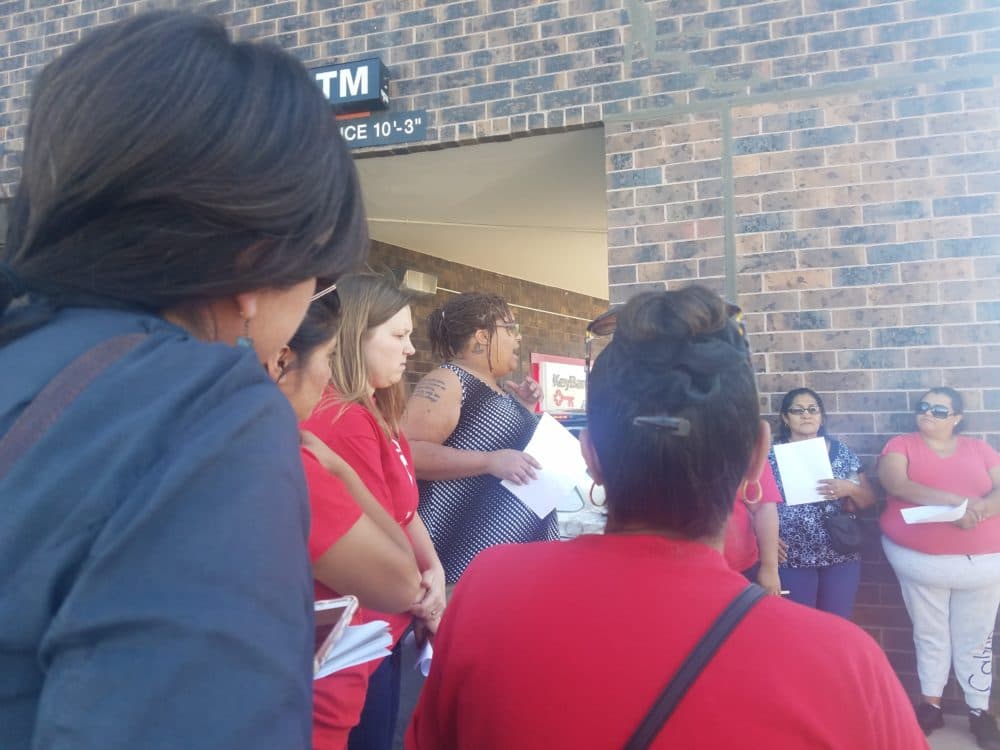Last year, more than 8,000 Denver households faced eviction notices, according to research from the Colorado Center of Law and Policy and the Colorado Coalition for the Homeless. It's a high-stakes process that can leave people without a home, plus an eviction record that will follow them for years.
Thousands of those people lost their homes -- but those who had lawyers had a much better chance of staying put. Among cases reviewed in the study, tenants who had legal representation that year avoided eviction 78.6 percent of the time.
However, only a small fraction of households have legal representation -- from 1 to 3 percent in recent years, according to the report. In all, the study counted only 11 households were able to use attorneys to avoid eviction in 2016.
And for the tenants who didn't have legal representation, the outcomes were quite different. Without representation, 43 percent of tenants in DHA were evicted and 68 percent of people in the sample of private housing cases also lost their homes.
The study included cases filed by Denver Housing Authority, as well as cases from seven other agencies, five private companies and two nonprofit property managers.
"Clearly, when tenants are represented, their outcomes are much more favorable," said Aubrey Hasvold, co-author of the report and an advocacy manager for CCH. "The numbers definitely reflect that. But I don't have a good anecdotal source about what it's like to have representation, primarily because so few tenants have representation."
For better tenant outcomes, CCLP and CCH recommend funding eviction defense, maybe out of Denver's office of Housing and Opportunities for People Everywhere or a new city office.
That's not on the city's list of eviction prevention policies just yet. There, however, is $76,000 in the proposed 2018 budget for eviction-assistance to low income renters.
Erik Soliván, executive director of Denver's HOPE office, says that the city is considering using the money for providing one-time assistance -- straight up cash payments to make one month's rent in emergencies -- to renters dealing with short-term crises. Other city strategies may be publishing a tenants' rights handbook and offering mediation to landlords and tenants.
Meanwhile, 9to5 Colorado and others are already seeking support for legal defense for tenants facing eviction, specifically from a firm that specializes in representing property owners in eviction cases.

In their "Evict the Evictor" event last Thursday, roughly 15 people met in the parking lot of the Tschetter, Hamrick and Sulzer law firm before delivering an eviction letter to their eighth floor office.
Activist Jenee Donelson delivered the group's demands that the firm "do better on who you choose to represent," referring to the firm's work with property managers and owners.
Afterwards, she described the action as "incredibly nerve-wracking, in a good way." That's partly because Donelson has also experienced eviction first-hand. In fact, Tschetter, Hamrick and Sulzer represented her landlord.
"You feel there is something that they could do to you still," she said.
It took Donelson years to move past her eviction, and for many years, she stayed in other people's places.
"I wish I would've done my research, wish I could've known that I could've fought my eviction, I didn't know that," she said.
Separately, Hasvold, co-author of the report had a similar suggestion:
"One huge component of standing up for yourself is filing an answer. And not many people know that they can do that," she said. "Number two, there are a lot of defaults. So what I would recommend is that people just need to show up to court. They need to show up and tell their story and fight back if they have standing to do that."










